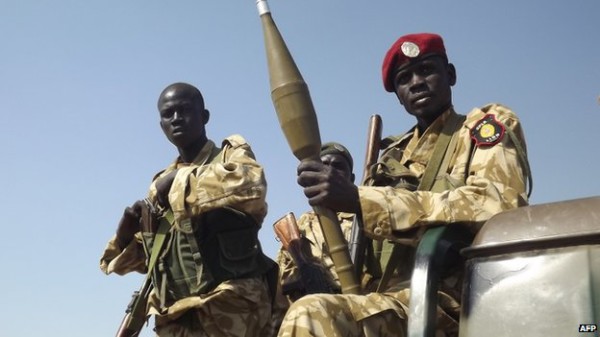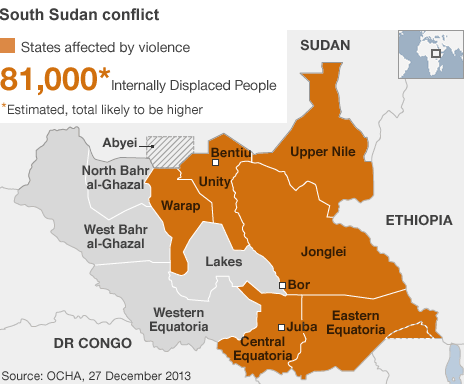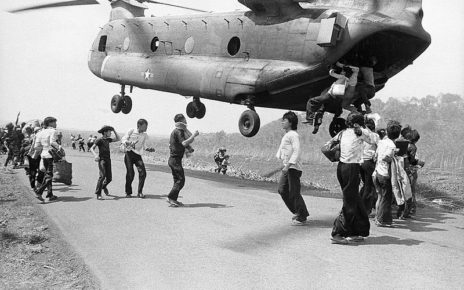In the coming weeks, South Sudan is set to face the world’s worst food crisis, according to the UN Security Council (SC). The SC said there is a “catastrophic” food shortage in the country and urged donor states who pledged $618 billion to deliver on their promise. According to UNICEF estimates, a third of the country’s population, about four million people, will potentially be affected. Unless international aid increases, some 50,000 children may die of hunger. Médecins Sans Frontières (Doctors Without Borders) has so far treated about 1,800 children for malnourishment at its feeding centre in Leer since mid-May. In 2013 it treated 2,300 children during the entire year.
South Sudan, which gained independence from Sudan in 2011, topped the list of the most fragile states in this year’s index developed by the Fund for Peace, a US-based research institute, as more than a million people have fled their homes since fighting between two factions of the ruling government erupted on December 15, 2013 in the capital of Juba. In addition, more than 10,000 have died as a result of the political conflict between President Salva Kiir and Deputy President Riek Manchar.
Last month, the rivals committed to a third ceasefire in less than a year and agreed to form a transitional government within 60 days; however, both sides have broken the ceasefire on numerous occasions. As political negotiations have stalled, armed forces on both sides continue to target civilian populations. As of July 2, at least 1,500 South Sudanese were crossing into neighbouring Ethiopia every week to escape the conflict and more than 158,000 had already crossed the border and were in need of assistance, according to the World Food Programme, the UN’s food agency.
Central to the food crisis is the fact that farmers, the country’s primary occupation, have been forced to leave their land and that the agriculture is only watered by rainfall on small, hand-cultivated plots. The planting season, which in the conflict zones usually runs from March to June, is the crucial opportunity for farmers to sow crops for the year. Due to the intense conflict in South Sudan and the widespread population displacement, planting has not occurred this season. As well, the rain season, which usually begins in May and ends in October, has already begun in several neighbouring states, prompting concerns of dangerously low crop levels in the fall.
Fighting and the beginning of the rain season have also made deliveries of supplies difficult by cutting off the chains of supply in South Sudan. Rain is predicted to make the dirt roads impassible and flooding is expected in several areas. Even plane deliveries are decreasing as rain soddens roads act as air strips. Aid work has also been hampered by rebel forces and government soldiers who have been looting vehicles and plundering supply stores. South Sudan’s oil reserves, Africa’s third-biggest and primarily located in Unity state, came under attack from rebel forces, which seized oil wells and halted production. Prices for basic food items, such as the staple crop sorghum, and goods have spiked in recent months as well due to blocked roads and unreliable river transit; barges transporting goods have often been attacked.
On July 24, the European Commission signed two contracts with the World Food Programme totaling €14 million to deliver vitally needed food assistance and ease the transportation of humanitarian cargo in South Sudan; the contribution is expected to assist approximately 1.7 million people and is a part of the attempt by the international community to relieve the human suffering in the state. Approximately six tons of food will be distributed along with cash and/or vouchers to give people in need the ability to purchase a variety of local foods. €5 million will support logistical aspects of moving life-saving supplies to the most remote and vulnerable areas of the country. Currently, humanitarian funding for South Sudan from the EU, its Member States and the Commission, stands at €208.5 million.
However, the international humanitarian agencies involved in supporting relief work in the country have less than 40% of the funds needed to fully relieve the crisis. According to Valerie Amos, the United Nations’ top humanitarian official, the international community must do more for South Sudan or watch the state deteriorate even further into disaster and famine. “If we don’t take urgent action now, we will see a major humanitarian crisis unfolding in South Sudan with respect to food security and the possibility of famine,” she said after briefing the U.N. Security Council on the situation in Sudan and South Sudan.
She added that famine is also possible in the South Kordofan region of Sudan where bombing, raids and displacement of farmers have also stalled the agricultural process; the Blue Nile area is expected to be severely affected. Amos also called on the SC and those with any kind of political influence to increase pressure to stop the violence on the warring sides in Sudan and South Sudan. She additionally called for U.N. humanitarian operations to be scaled up significantly in the two countries in order to help them avoid a potentially disastrous humanitarian crisis, which could become the worst on the African continent since the Ethiopian famine of 1984.






